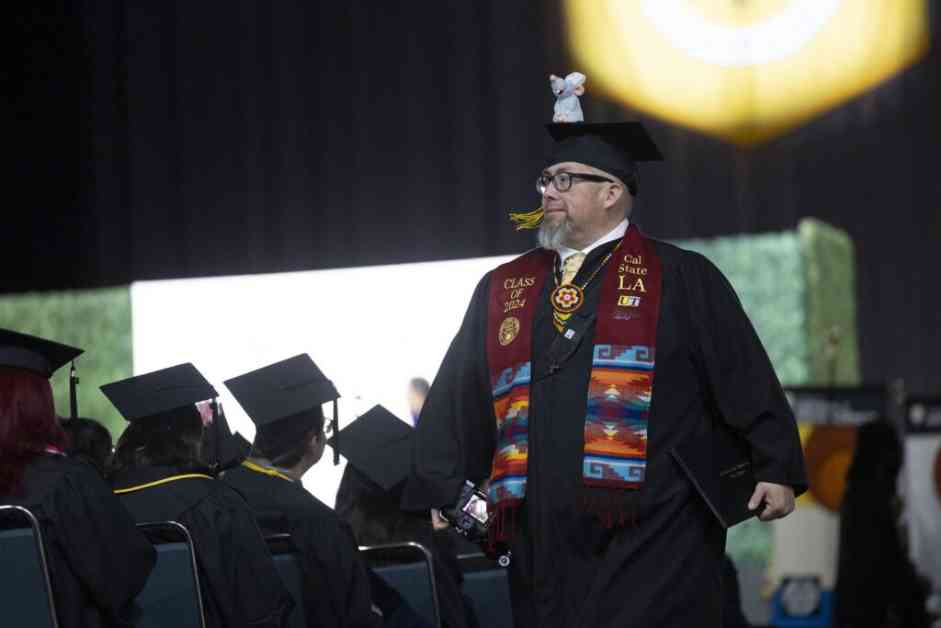Xavier Zamora, a recent graduate of Cal State LA with a double major in journalism and TV, film, and media studies, has a powerful story to share about his academic journey. He faced challenges due to undiagnosed ADHD, but through perseverance and determination, he was able to return to college later in life and successfully earn two associate degrees and two bachelor’s degrees. His story serves as a guide for others looking to maximize the benefits of returning to college late in life.
Understanding ADHD: A Roadblock and a Revelation
Xavier Zamora’s academic career was initially delayed and impacted by ADHD, a condition he was unaware of for many years. It wasn’t until a conversation with a doctor at a youth mental hospital where he worked part-time that he began to consider the possibility of having ADHD. Despite not fitting the stereotypical image of hyperactivity associated with the disorder, Zamora’s struggles with time management, task completion, and procrastination led him to seek a diagnosis.
After consulting with a doctor and psychiatrist, Zamora was diagnosed with attention-deficit/hyperactivity disorder, predominantly inattentive (ADHD-PI). This diagnosis provided him with clarity and a new perspective on his academic challenges. Understanding the root cause of his difficulties allowed Zamora to develop strategies to manage his ADHD effectively and set himself up for success in his academic pursuits.
Maximizing the Benefits of Returning to College Late: Strategies for Success
Creating a Supportive Environment: Zamora emphasizes the importance of creating a conducive study environment free from distractions. By establishing a dedicated office space and utilizing noise-canceling headphones, he was able to focus on his studies and minimize potential distractions that could derail his progress.
Utilizing Technology: Zamora made use of various apps and tools to enhance his productivity and organization. Apps like Calendar, Reminders, and Evernote helped him keep track of notes, appointments, tasks, and deadlines, ensuring that he stayed on top of his academic responsibilities.
Adopting Effective Study Techniques: To overcome his struggles with retaining information, Zamora employed text-to-speech features that allowed his laptop to read his books aloud while he followed along. This approach helped him absorb and retain course material more effectively, ultimately contributing to his academic success.
Building a Support Network: Zamora highlights the importance of surrounding oneself with a supportive network of professors, therapists, and family members. Having understanding and accommodating professors who recognized his challenges and provided assistance was instrumental in his academic journey.
Embracing Growth and Opportunities: Despite facing obstacles along the way, Zamora’s determination and resilience propelled him forward. By seizing the opportunity to return to college later in life, he was able to pursue his academic passions and achieve his goals, culminating in the completion of multiple degrees and the pursuit of a master’s degree.
Looking Ahead: Zamora’s story serves as a testament to the power of perseverance, self-discovery, and the pursuit of one’s academic aspirations. By embracing challenges, seeking support, and adopting effective strategies, individuals can maximize the benefits of returning to college later in life and achieve their educational goals.
Conclusion
Xavier Zamora’s journey from struggling with undiagnosed ADHD to successfully earning multiple degrees is a testament to the transformative power of education and personal growth. By sharing his story and insights, Zamora provides a valuable guide for others embarking on a similar path of returning to college later in life. Through resilience, determination, and a supportive network, individuals can overcome obstacles, harness their potential, and unlock the benefits of pursuing higher education at any age.




















